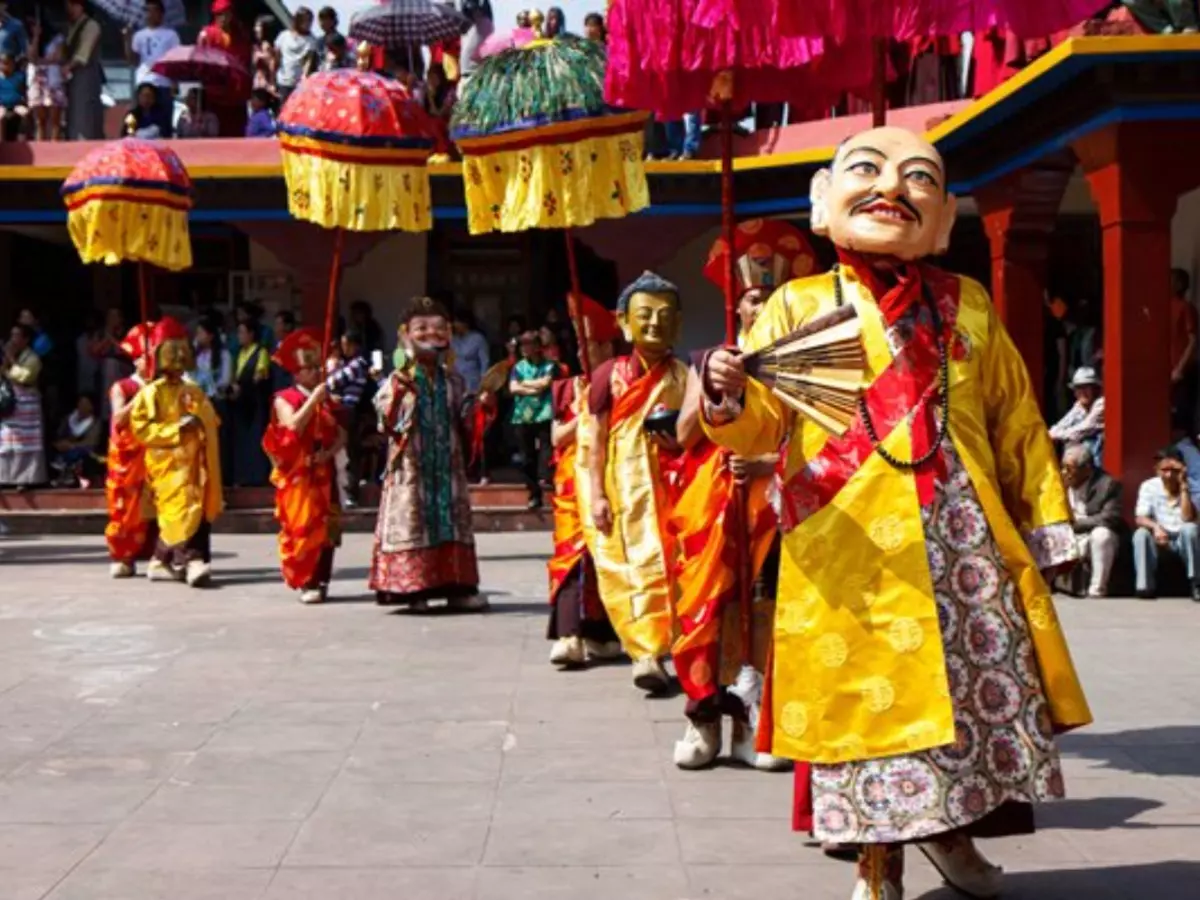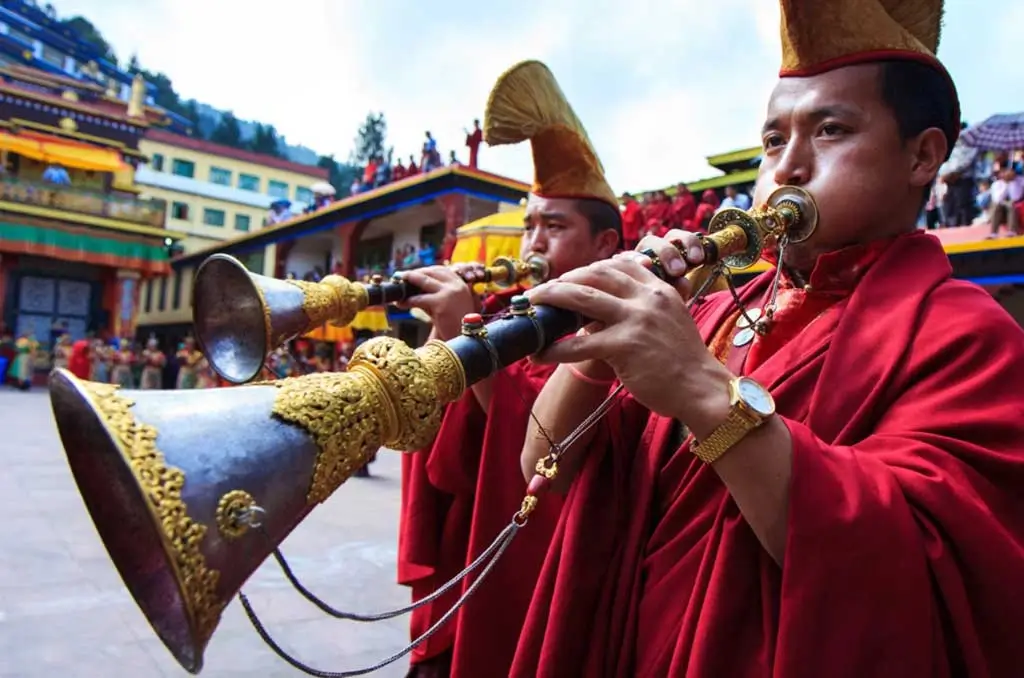India is known for festivals and Indians are known for celebrating festivals big and fat. Life in Sikkim, in a way, is an enduring festival as one or the other festival is celebrated here throughout the year. Since Sikkim is home to people with different religious beliefs, all the festivals are celebrated here with gusto and fervor. Harmony can be witnessed here in festivals and the whole state is covered in the color of joy irrespective of the religion of the people. Hinduism is the dominant religion in Sikkim; however, all the festivals are celebrated according to Buddhist calendar.

This festival is the triple blessed festival that marks the three important events of the life of Lord Buddha which are birth, enlightenment and nirvana. Celebrated on the full moon day of the 4th month of the Buddhist lunar calendar, Saga Dawa is celebrated in Gangtok. On this day, people go to monasteries to worship and offer butter lamps. Saga Dawa is one of the most sacred Buddhist festivals.

This festival is celebrated by arranging get-togethers by inviting relatives and friends. Losar is the Tibetan New Year, and falls normally in the month of February. People of Sikkim share this festival with the Tibetans. Yak dance is observed and people offer greetings to welcome the coming year. Tibetans start celebrating Losar one week before the main festival day.

Another major festival of the Buddhists, Dupka Teshi, is celebrated on the fourth day of the sixth month of the Tibetan Calendar (July or August according to the English calendar). The day is celebrated to honor Lord Buddha as he preached his five disciples the first lesson of four truths. Those truths are truth of suffering, truth of Karma and Delusions, truth of attainment of Nirvana and truth of Eight Fold Path leading to Nirvana. On this day, prayers are held at Deer Park, Gangtok and Muguthang. Yak races are also organized on this day.

Celebrated in the month of January in Tashiding monastery, Bumchu is another major festival celebrated in Sikkim. On this day, Lamas of the monastery open the pot of holy water and some water is distributed among followers/devotees. Then the pot is refilled with water and sealed to open it at the next year's Bumchu celebration. The water level foretells the future of the coming year.

This festival marks the fall of Lord Buddha from the heaven of thirty-three gods after he visited his mother to give her sermon. Lhabab Dhuechen is celebrated on the 22nd day of the ninth month in the Buddhist calendar (November according to English calendar).

Losoong, a Bhutia festival, is celebrated at the end of the harvest season that is also the beginning of Bhutia's New Year. The day is celebrated by performing mask dance and organizing archery competition.
Apart from these, Sakewa, Teyongsi Sirijonga Tongnam, Maghe Sankranti, Tendong Lho Rum Faat, and Tihaar are other festivals which are celebrated by other communities apart from Buddhists.